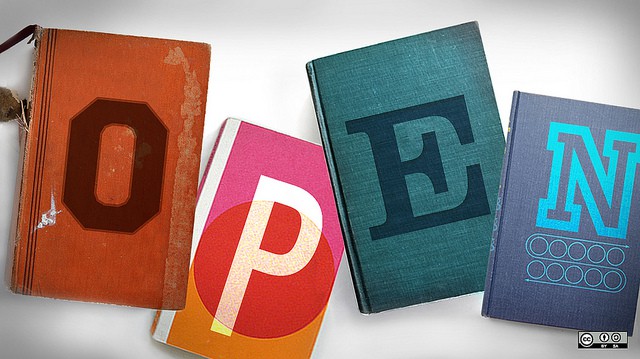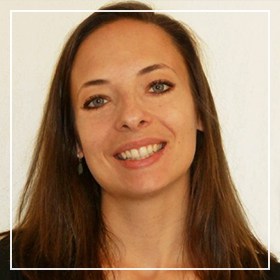As shown by the myriad of events highlighted during International Open Access Week, the amount of talk and initiatives regarding open science and the transition toward an open access model for scholarly communications is growing at a remarkable pace. Advocates around the world are doing an amazing job at spreading the OA gospel!
Endeavours for the advancement of open access, however, are often met with concerns from paid scientific journals regarding the economic consequences of such a model. This past month, a couple of studies addressing these issues were released.
Cairn.info and French-language humanities and social science journals
On July 17th 2012, the European Commission released a recommendation encouraging all member countries of the European Union to take measures to provide free-of-charge and open access to journals publishing publicly funded scientific research after an embargo period of no more than 6 to 12 months (period during which access to academic journals is restricted for non-subscribers and/or individuals who have access through their institutions. This measure aims to protect publishers’ revenues.)
A subsequent study released in July 2015 was conducted by the Institut des Politiques Publiques (IPP) for the Ministry of Higher Education and Research. Its results led the IPP to propose a measure consisting of reducing that embargo period in order to increase the circulation of scientific research publications. This study did not, however, discuss the costs of this type of open access policy.
Cairn.info, the online platform circulating most of the French-language humanities and social science (HSS) journals, in partnership with IDATE, thus took on the task to fill this gap. In a study published earlier this month, they expose the potential consequences of the IPP measure in relation to the economic viability of these journals.
Due to the budget cuts, university libraries have reduced their acquisitions of and subscriptions to scientific journals. Unsurprisingly, this has had a similarly negative impact on the revenues of these journals. In addition to the struggles of digital revenues to compensate for the decline in hardcopy revenues, HSS journals are already in a very fragile state. Reducing the embargo period, as proposed by the IPP, would weaken the economy of HSS journals even further, the study says. The authors of the Cairn.info/IDATE study fear the demise of a large number of HSS publications or a loss of quality of the content they offer.

To prevent this from happening — remaining within the French-language HSS journals pool — they propose what they call a “Platinum” model. Measures would include the “free publication on Cairn.info of the digital version of their partner journals … with no embargo period” as well as establishing “a system of ‘upstream’ payment” whereby public institutions, with support from the Ministry, would pay a fee to the publishers to cover the costs inherent to the publishing of its researchers’ work, among others.
The authors of this study insist on the urgency to discuss this proposal as it could quickly become pointless if scientific publications were to be too profoundly shaken by the measures suggested in the IPP report.
The American Anthropological Association and HAU’s cooperative model
Similar debates are taking place in the United States as the American Anthropological Association (AAA), the world’s largest publisher of anthropological journals, finds itself at a turning point in the management of its publishing program. From January 1, 2018 on, a new publisher will be in charge of this crucial task shaping the next 10 years of anthropological publishing and the discipline’s global representation. Now is therefore a critical time to discuss and consider ways for the AAA to actively participate in the open science movement and make its publishing program open access (check out Rex’s post on Savage Minds: “What a cooperative proposal means for the AAA”)

In the editorial of the latest issue of Journal of Ethnographic Theory, HAU, in collaboration with Savage Minds and Cultural Anthropology, proposes “a concrete, practical, and financially sustainable” way for the AAA to achieve this goal. Built on on-going data-gathering and experimental work by two of the most prominent open access advocacy structures — the Public Knowledge Project (PKP) and the Scholarly Publishing and Academic Resources Coalition (SPARC) — this proposal consists of a cooperative model at the core of which lies a close cooperation among the various stakeholders involved in open access publishing within a prosperous and viable framework.
Drawing on a case study based on an imaginary anthropological journal yet using real pricing data, HAU and its partners successfully demonstrate how “the cooperative model could provide a larger margin of revenues for learned societies [such as the AAA], while making scholarly communication fully open access.”
On with Open Access
The fact is, current HSS publishers are profoundly worried about a shift toward an open access model for scholarly communications. The financial stakes, as far as they are concerned, would be significant. However, such transition is essential and concrete steps should be taken to encourage it — as was done above, for example, by devising and proposing viable alternatives (see also: “How to switch quickly to diamond open access: the best journals are free for authors and readers”.)

The benefits of a widely implemented open access model are undeniable. It would undoubtedly increase the circulation of scientific writing as well as authors’ citations. And heightened visibility and accessibility would therefore ensure that the results of publicly funded research are indeed made available to the public. It could also enable researchers and their institutions to manage the entire process of academic research, including the publishing stage so critically important to career advancement, peer recognition and institutional prestige and for which they now depend on publishers holding the monopoly on paid academic journals.
An open access model can, in fact, level the academic publishing playing field, granting more freedom and ownership to scholars and research institutions and making their work more accessible to the public.






Thanks so much for this brilliant article, so crucial in reminding that we should care about the future of academic publishing, that is the way our field and inner work as anthropologist reaches the outer world and survives us. I have just one minor but very important Errata to add. LIBRARIA’s (http://libraria.cc/about) cooperative initiative is not HAU’s project but a new cooperative model originally developed by Alberto Corsin Jimenez, myself and John Willinsky but now involving several other partners, including the people at the Society of Cultural Anthropology who, among others, collaborated in writing the article released at the same time in both HAU and the website of the SCA. Thanks again for your work in spreading the OA gospel!
I wouldn’t go as far as to say that I disagree with OA, but I am arguing that
‘The answer to academic publishing challenges is not always open access’ in my latest post:
http://aidnography.blogspot.com/2015/11/critique-of-academic-publishing-open-access-debate.html